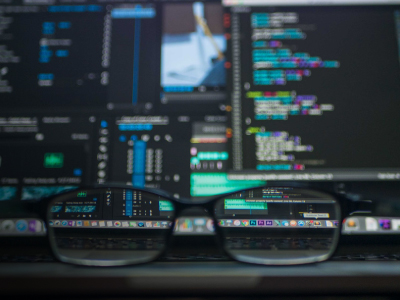Privacy: how to protect your personal and corporate data
In today’s day and age, within the context of cyberspace, where communication does not rely on being physically present, and information is transferred between several systems, ensuring privacy is an even greater challenge. Personal and corporate information mix in cyberspace, opening breaches that hackers can mine and negotiation on the Deep Web.
Companies need to recognize the importance of discussing IT Security, of understanding its gaps, creating action plans, and the good practice of raising internal awareness. Many of these practices include simple tasks, such as updating applications and computers, reading terms of use on the websites that are used, not trusting emails and suspicious websites, using strong passwords and two-step authentication. Starting with the basics, you can create a culture of security, and implement adequate controls.
How to protect personal and business data
The Internet presents countless benefits that make our life simpler. Meanwhile, the violation of privacy has increased day-by-day, particularly given the sense of anonymity that people have.
The issue of Privacy is not limited to one’s personal life, but also to the corporate world, regarding customers’ data. Individuals and companies should control the administration and protection of their data, regardless of the device, service, or platform that are being used. People own their own data.
You’ll have to take proactive measures that involve actions related to Digital and Cybernetic Security, implying employees, processes, and technology, as well as proceeding to update contracts, terms of use, and privacy policy.
Thinking corporately
The new view of cybernetic defense, not only deals with technology, but with interaction between people, since human interferences represent up to 25% of cases of business information leaks. The greatest threat from cybernetic attacks is the violation of privacy and exposure of clients’ data. Complying with the GDPR (General Data Protection Regulation) minimizes the risk of financial and reputational loss.
The right to privacy, which is strengthened by the GDPR, allows individuals to exert greater control over their information in a digital world, guaranteeing that personal data is not exposed to third parties without consent.
Privacy starts with people, but there are two sides to this responsibility: on the one hand, people should only disclose what is really necessary; while on the other hand, companies should preserve and use personal information properly while they are necessary, and proceeding to remove them correctly.
How to adapt to GDPR
1st – Define a DPO (Data Protection Officer);
2nd – Implement the obtainment of consent;
3rd – Identify Personal Information (Personally Identifying Information) and Sensitive Personal Information (SPI) in all of your organization and systems;
4th – Conduct Analysis and Management of Vulnerabilities;
5th – Conduct DPIAs (Data Privacy Impact Assessment);
6th – Implement security measures throughout the data’s entire life-cycle;
7th – Plan, document, and control data transfers;
8th – Conduct recurrent training and awareness campaigns.
How can we help your company?
We have specific Security Program to help your business to address all of the regulation’s points. This includes all of your company’s Security Processes.
It also includes Security Controls for all of the data’s states, from transmission to storage, among others, the collecting of metrics for adjustments to the process, and measuring performance to increase its maturity.
Get in touch with us to learn more!







